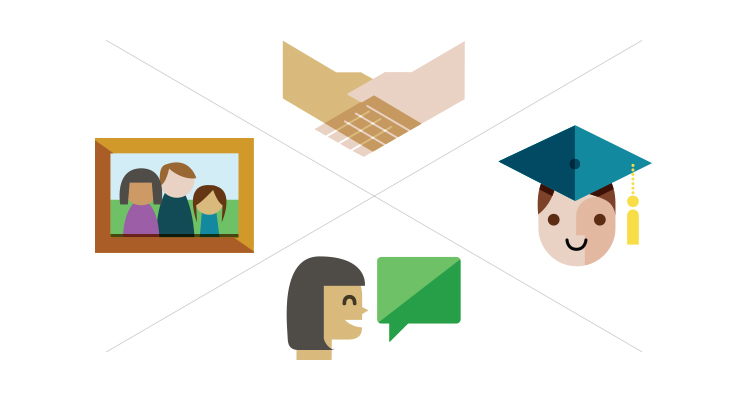For some it would be hard to imagine that anyone who suffers from dyslexia can manage to be productive. The misconceptions about dyslexia make it seem that anyone affected can barely read or write yet there are people who find great success and strength in the presence of this protracted affliction.
A number of very successful, famous, and productive individuals are affected by dyslexia. For example, movie director, Steven Spielberg, and business mogul, Richard Branson, have both credited their struggle with dyslexia as a contributor to their successes. The constant struggle they endured at a young age provided the motivation to succeed, to overcome, and most importantly, to adapt.
While success is all well and good, the question remains, what can be done for the rest of us, who are just struggling to get by in school? Sun Tzu once said, “If you know the enemy and know yourself you need not fear the result of a hundred battles.”
Dyslexia has no cure and unfortunately is not completely understood, however, when struggling with dyslexia or another learning challenge, there is hope. If you are a child or parent struggling with a learning disorder, ask yourself “why is this exercise not working like it should?” Think critically and be willing to adapt or tweak certain aspects of the learning process.
For me, hope resided in a certain recipe of language exercises, memorization and vocalization.
In addition to dyslexia, I also struggle with is what is known as Auditory Processing Disorder (APD), which affects the input and output of auditory information and how it is stored and processed by my brain. To manage APD was a tremendous struggle, but with the help of learning coaches I was able to formulate exercises that were extremely helpful. One tactic I used for memorization was a method of using flash cards (or post-it notes) on a bedroom door. The exercise consisted of physically arranging the flash cards on the back of a door in columns. The physical placing of a piece of information made all the difference, as normal flash cards in a stack just didn’t work; I had to visualize where the specific word or subject was on the door in relation to the other information I was trying to memorize. Unfortunately, it was not until high school that I discovered this method, but it served me well in college and continues to be a tool I use even today in my professional work.
Had I not discovered a way to manage one part of my learning challenges I believe that others challenges might have begun to spiral out of control. Discovering an exercise that addressed my ADP began to have a cumulative positive effect on my studies. The moment I could process auditory information more efficiently, I began to feel less anxious in class. I could pay attention; I could formulate coherent ideas faster and feel more confident when giving opinions or feedback. There are, of course, many other ways to manage learning disabilities, disorders and challenges. What’s important is finding approaches and tactics that work best for you.
For me, one adjustment was as simple as putting flash cards on the back of a door, because the physical location somehow anchored the information. Be creative and think about how you learn best. What things do you remember most easily, and why? Repetition is at the root of every learning exercise, but it will be up to you how to best navigate learning.
Know your enemy and know yourself. These words from Sun Tzu, not meant for just the battlefield, can be applied to learning disabilities, disorders and general challenges. The more you know about your individual challenges, the more you will eventually know about how to manage them. If I can offer one final piece of advice, it is to be patient with yourself but diligent, because the hard work will pay off, and can have a cumulative positive effect on your learning journey.






































